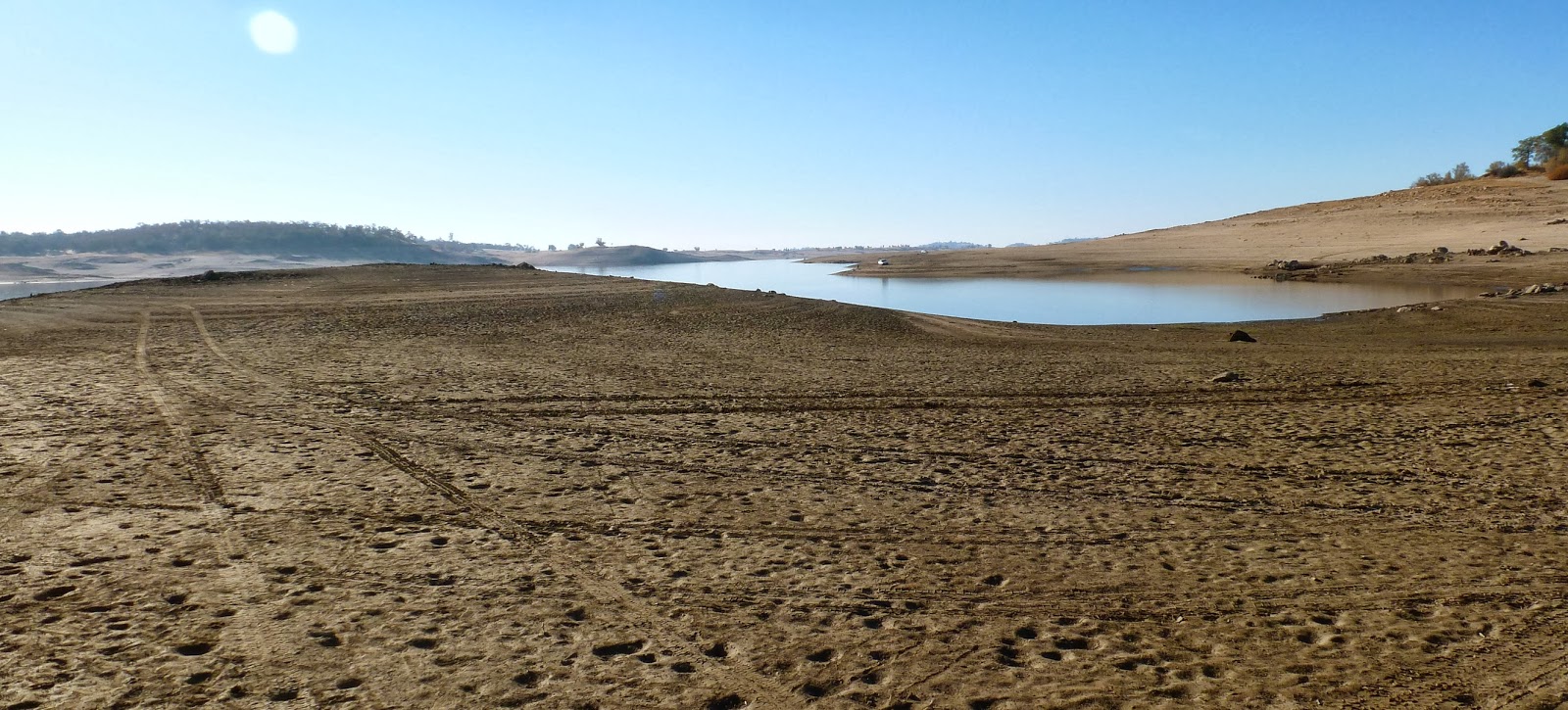The Lord raised his hands high over the course
of the American River and said “Dam it…”
…And they did.
Impetus for the
start of construction
of Folsom Dam, 1952
The upside of an unseasonably warm
and dry winter is the elongated riding season motorcyclists are enjoying in
California. The downside is
drought.
Back in the early-fifties, Sacramento, located at the
confluence of the American and Sacramento Rivers lay rife for a catastrophic
flood. One storm barreling up the
American River complex could inundate the capitol, flood tens of thousands of
homes, sacrifice countless lives and cause untold sums in damages. The Folsom Dam, just east of Reprisa –
site of Folsom Prison – would serve to protect the city, provide hydroelectric
power, offer irrigation for valley farms and serve as a minor Mecca for
recreation.
The story goes that upon completion, a three-year fill
timeline was expected. But an
unexpected storm did, indeed, barrel up the canyon and the lake was filled in
less than a year.
Through wet years and dry, the reservoir has risen and
fallen at the command of those who mete out water satisfying the needs of
farmers, city-folk, power companies and salmon.
Until now.
As recently as April of 2013, Folsom
Lake was nearly brimming. Along
its springtime shores grew acres of Lupine.
 |
| Click on any photo to expand 'em all. |
The Bureau of Reclamation makes commitments to interests down stream, and by September, the reservoir is drawn down ready to accept the upcoming runoff due to begin in October or November.
In preparation for its initial fill, the basin was denuded
of plant life. When the capacity
is reduced, interesting evidence of our geologic past appears.
Boating access is stymied as the water level falls below the
reach of the ramps. But usually,
not this far.
A larger than usual amount of lake bottom is exposed. After decades under water, many of the soluble
minerals have melted away. Much of
the granite that once graced the area has decomposed.
Rounded domes and outcrops remain in places – looking,
perhaps, a bit more weathered than before the lake.
Some say it looks like a moonscape. (I've not been to the moon, although I understand Alice might have.)
As the reservoir drains away, the American finds its old
course slipping past gravel bars around sweeping bends.
Our history, of course, predates the
dam. And with the pool of water
depleted it is easy to find artifacts of our past. Water had been diverted into a canal on the South Fork. A mechanism was installed to keep
debris out.
Bent iron stock served as steps in the side of the dam that
diverted water into the canal.
Some artifacts are easily dated. Note that this can had both a pull-tab – outlawed some time
ago – and a bar code – something relatively recent.
Others not so easy.
A busted obsidian point similar to this was spotted half buried in some
decomposed granite.
Some are tricky.
A tin sign, neatly punch-lettered “Red Rock Mine” floated downstream
from somewhere. Perhaps a decade
or two after the rush?
Close examination of the nails holding the sign to the log
show that they are round-headed not cast square ones. This tells us “Not quite so old…”
Whole communities lived in the canyon. Foundations and walls, under the
surface for six decades are again exposed.
And then there’s just the weird remains
of those things natural and man made that set the mind to fantasy. A Spielberg creation?
Neptune’s lectern?
Remnants of an alien craft?
A sea creature vanquishes whatever it’s vanquishing…
One wonders whether someday the old dam itself will be an
artifact upon which people look back and, well, wonder.
As of January 31, the region has
received 17% of its seasonal precipitation. The lake stands at less than 15% of capacity. Its drained carcass serves as a stark
reminder that the west is arid land.
With the allure of majestic coastal vistas, verdant, fertile valleys,
gold in the foothills, timber in the Sierra, winter sports and summer ones,
too, it is easy to overtax Mother Nature.
An argument could be made that we’ve done that.
Note: If you are an east coaster with
plans to escape the terrible winter you are experiencing by coming out west,
please consider packing a bucket or two of ice that you can drop in the
remnants of old Folsom Lake. You
probably’d be happy to rid yourself of it. And we could really use the water. Thanks.
© 2014
Church of the Open Road Press
























I've heard on the news reports of how it has been dry out West. This is far worse than I could have imagined.
ReplyDeleteYou're welcome to any amount of our dreaded Ohio snow...
Thanks for the awesome photos and story. Keep 'em coming.